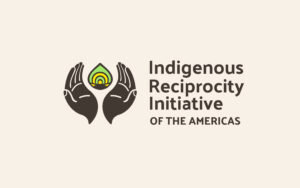- The Unbelievable Claims of Psymposia about MAPS and MDMA-Assisted Therapy - July 19, 2024
- Combining Psychedelics with Capitalism May Cause Unintended Side Effects - January 24, 2019
- It’s Time for the Psychedelic Renaissance to Join the Harm Reduction Movement - October 29, 2018
For years I was on board with much of Psymposia’s writing and podcasting, viewing them as sincere even when I disagreed with some of their points or tactics. But for the past two years I have been much more skeptical of their critiques of the therapeutic side of the multifaceted psychedelic movement.
I want to start by stating that abuse in any type of psychedelic healing setting is abhorrent and unquestionably important to address. I’ve written about this myself in a 2021 peer-reviewed study. Despite Psymposia’s early contributions to giving voice to victims of abuse in psychedelic spaces, I no longer believe the organization is an honest watchdog for the field of psychedelics, or primarily concerned with the interests of people who have experienced abuse or trauma. In this article I’ll elaborate why I’ve come to this conclusion about a group of people with whom I otherwise share many critiques and perspectives.
Despite Psymposia’s early contributions to giving voice to victims of abuse in psychedelic spaces, I no longer believe the organization is an honest watchdog for the field of psychedelics, or primarily concerned with the interests of people who have experienced abuse or trauma.
In case you’ve missed it, Psymposia is a non-profit self-described “watchdog” organization that has published numerous critiques about the psychedelic ecosystem, many of which I have agreed with over the years. While it used to publish a variety of perspectives across the field, its last few years of publishing and activity have been dominated by a few specific people: Brian Pace, Neşe Devenot, Russell Hausfeld and David Nickles, who have become highly influential voices with regard to psychedelics.
I am focusing on this group because – as Devenot has documented in exquisite detail (here and here for example) – they have participated in a number of impactful efforts: ethical complaints spurring investigations by Health Canada; complaints to FDA and ICER (Institute for Clinical and Economic Review); critiques raised at the FDA Advisory Committee (Adcomm); and a season of a podcast heavily focused on critiquing MAPS (Multidisciplinary Association for Psychedelic Studies). These efforts are among countless other writings, media interviews, petitions, speaking appearances, and podcast episodes. Through these mediums, they have expressed many opinions about the design of clinical trials for the therapeutic use of psychedelics, the ethics of clinical practice, and how psychedelic-assisted therapy should and shouldn’t be practiced. For context, Brian Pace is a lecturer in the Department of Plant Pathology (PhD in Evolutionary Ecology), Neşe Devenot is a lecturer in the University Writing Program at John Hopkins University (PhD in Comparative Literature & Literary Theory), David Nickles describes himself as an underground chemistry researcher, and Russell Hausfeld is a journalist.
To demonstrate just a few examples of points they’ve made that are worthy of scrutiny, in one podcast episode they discuss the logistics of clinical trial design and FDA process, (also discussed throughout season 2 of the Power Trip Podcast). They critique MAPS and Lykos for using an independent (i.e. non-university) IRB, declining to mention that independent review boards are commonplace in pharmaceutical research. On the one hand, these independent boards should be critiqued for potential bias, but Psymposia creates the impression of an ethical lapse that is specific to MAPS and Lykos instead of an industry-wide reality. Another way that they neglect relevant context is by criticizing the “gold standard” clinical PTSD scale used in MAPS’ and Lykos’ MDMA clinical trials, for example by criticizing the lack of qualitative interviews. What they neglect to mention is that FDA requires only quantitative research measures, and that MAPS and Lykos voluntarily conducted both qualitative interviews and long-term follow up studies. In one of the most publicized and misunderstood cases, they critique “functional unblinding” (meaning the fact that many participants correctly guessed whether they were in the placebo or MDMA group based on side effects) while ignoring that FDA understood this common problem and still approved the study design. Not only does the FDA not require functional unblinding to be evaluated, but it is unlikely that any drug has ever failed approval because of it.
The Psymposia team drastically overstates the amount of control MAPS or Lykos will have over the practice of MDMA-assisted therapy. The majority of therapists, especially younger therapists, integrate multiple theories into their practice to respond flexibly to their clients’ unique needs. In my own critique of my profession during 11 years as a professor and nearly 20 years as a therapist (the past seven years primarily in the nonprofit sector), I have long held the view that therapists should be more transparent about which theories and techniques they draw from, the philosophical foundations and implications of those approaches, what they see as literally true versus metaphor, and relevant research, in order to facilitate informed decision making by the client.
From Psymposia I see mostly a lack of nuance or professional judgment. They offer a general critique of “therapy” neglecting that there are hundreds of therapy approaches, and critique minor aspects of specific therapies that they personally dislike or don’t understand. In the process of attempting to advance a “progressive” or “radical” critique of the field, they ironically seem to be narrowing the range of acceptable therapies down to conservative, manualized, and highly structured, “more established” ones that have “empirical support” (a reductionistic concept that has been critiqued extensively in favor of less positivist and more culturally-responsive evidence based practice). Their calls for orthodox treatments would likely point us to brief, manualized Cognitive Behavioral Therapies, which for decades have been critiqued by feminist and multicultural theorists as Eurocentric and patriarchal (i.e. individualist, internal, apolitical, cognitive/rational), and which seem a particularly poor approach to psychedelics. This lack of rigor leads to obvious contradictions, such as criticizing Rick Doblin for inviting people to use the MAPS Therapy Manual to treat their own PTSD, despite elsewhere advocating for a “DIY” approach to psychedelics.
Psymposia’s U.S.-centric and Eurocentric stance might be overlooked given its members’ seemingly strong radical cultural and political critiques, but upon closer look it is pervasive.
Psymposia’s U.S.-centric and Eurocentric stance might be overlooked given its members’ seemingly strong radical cultural and political critiques, but upon closer look it is pervasive. International researchers have emphasized that much of the world follows the decisions of FDA, because of the cost and inefficiency of every country running its own trials. In their attempts to resist the inequities of the capitalist U.S. healthcare system, which is much larger than psychedelic medicine, Psymposia has completely neglected that many countries have universal healthcare where treatment is allocated more based on severity and urgency – but that will never offer psychedelic therapy as a treatment without US FDA approval. Throughout Asia, the Middle East, and Africa, if it is possible to introduce psychedelics and challenge the propaganda of the war on drugs, it will most likely be through FDA approval and medical use since decriminalization is not even up for discussion. Derailing the medical use of psychedelics would have different impacts in each country, but would potentially impact access and the relaxing of drug laws worldwide.

Discover the Indigenous Reciprocity Initiative of the Americas
Eurocentrism is also evident in Psymposia’s frequent focus on the use of touch in therapy, neglecting vast cultural variability in norms related to touch. By associating all touch with potential abuse and representing a few instances of abuse and boundary violation as representative of the norm in aboveground settings, they have contributed to a set and setting of interpersonal fear and mistrust. They either intentionally obscure or lack knowledge of the long history of scholarship on the theory, research, and ethical guidelines (1, 2) for touch in psychotherapy. Rather than drawing from this literature, they present it as uncharted territory and offer brief and reductionistic reflections seeking to establish themselves as some sort of pioneering experts on the subject, a pattern which they repeat for other topics as well. For example, they seem to suggest they are opening up a field of psychedelic ethics, neglecting to reference the abundance of existing ethical guidelines for the practice of psychedelic-assisted psychotherapy – linked here, here, here, here, here, here, here, and here.
Finally, and quite strangely, Psymposia has landed on the conclusion that MAPS is a “therapy cult,” in multiple venues comparing MAPS to the sex cult NXIVM. This would not be worth debating if it were not emblematic of their propensity for personal attacks, selective use of information, inferences from brief or out-of-context quotes, and name calling. They seem to draw this conclusion from comments by Rick Doblin about spiritual purpose in MAPS’ mission, along with accusations of inappropriate fundraising practices, and two theories used in psychedelic research, Internal Family Systems-IFS and Stanislov Grof’s pioneering Transpersonal approach. They mostly critique minor aspects of each theory, such as outdated aspects of Grof’s theory and “unattached burdens” in IFS, while neglecting to mention that only 15% of IFS therapists complete the final level of training where this concept is introduced, according to the IFS therapist directory. They also hone in on the concept of “inner healing intelligence” as unscientific, though it is a metaphor and we don’t research the effectiveness of each metaphor! This metaphor addresses our own mind and body’s tendency to heal itself under favorable conditions and is a way to encourage non-avoidance of one’s internal experience, despite their suggestion that it is a spiritual concept that gives cover for problematic external therapist behavior. Eurocentrism again comes into play here, as they sidestep important calls by multicultural theorists and advocates of Indigenous healing models, who have long decried the neglect of spirituality in therapy. Nothing about any particular training or theory reduces the ethical responsibility of therapists to follow their client’s preferences, rather than imposing their own belief system, when it comes to incorporating spirituality into therapy.
I have long been a critic of the medical model, mental health diagnosis, capitalism in medicine and in general, all forms of oppression and discrimination, and the global war on drugs; however, I believe the Psymposia team’s actions will do more harm than good to drug policy reform efforts and psychotherapy. My sense from speaking with others in the field is that I’m far from alone, particularly since the FDA Adcomm recommendation against approving MDMA, despite experts petitioning in favor of approval. Psymposia has accused MAPS of hiding behind veterans and being complicit with the military, ignoring that even by their own logic, members of the military are far more likely to have been victims of childhood trauma (at least 40%) than to have experienced combat (29%). Fear of criticism from Psymposia has caused a silence that seems to have contributed to the perception of Psymposia’s claims and accusations are more accepted than they are.
There seems to be an overconfidence that victory is coming against the war on drugs, and that we can just demand our favorite policies. As policy advocates we need to get whatever gains we can while the political environment is somewhat favorable. I too favor decriminalization, but I know plenty of radical harm reductionists who want a legal safe supply of drugs given the overdose epidemic, suffering people who want legal psychedelic-assisted therapy when every available drug and therapy has failed them (some of whom became suicidal in light of the FDA Adcomm decision), and citizens who want religious rights or autonomy of their body and consciousness. We need ALL of these policy strategies concurrently: legalization, decriminalization, medicalization, spiritual use. In many countries the best psychedelic drug policy they get any time soon is medical use; in other places there is hope for decriminalization or legalization, and so that should be pursued. We need layers of different policies because policies will be rolled back at times, as happened when decriminalization “Measure 110” was recently repealed after a propaganda campaign in Oregon. So, to carve a narrow pathway of one right way and put all of one’s efforts into blocking other strategies is simply short-sighted and counterproductive, much like how the American left rejected universal healthcare under Richard Nixon for not going far enough, and never got a second chance.
We absolutely need accurate information about drugs, accountability for harms, strong ethics, and critique of our research and practice, but Psymposia’s narrow and ahistorical focus on strategy and their exclusive focus on harms inadvertently contributions to stigma and drug war propaganda.
We absolutely need accurate information about drugs, accountability for harms, strong ethics, and critique of our research and practice, but Psymposia’s narrow and ahistorical focus on strategy and their exclusive focus on harms inadvertently contributions to stigma and drug war propaganda (e.g. Devenot and Pace’s ‘Right-Wing Psychedelia” article). We won’t achieve a realistic understanding of drugs by vacillating between extremes of utopian benefits and the worst harms. We must have more discernment and be alert to circular referencing (e.g. Psymposia and allies appear to have been a primary source of harms for the ICER report, which they then re-promoted as evidence of harm). Sadly, this plays into the hands of Psymposia’s biggest stated adversaries. In the end, I’m afraid all they will have achieved is handing psychedelics to the most capitalist drug developers within a rigid conservative Western biomedical model. Ironically, Psymposia’s rhetoric is meeting the more mainstream biomedical reductionist models, ultimately rejecting the benefits of therapy and potentially reducing a more holistic treatment to the mere consumption of a synthetic drug.
My best guess is that what was devastating and what prompted the war with Doblin and MAPS was the heartbreak of initially believing MAPS could fully represent their anti-capitalist and anti-establishment values, which it drifted from as the FDA process progressed. Rick Doblin seems to share this heartbreak as he recently said at the International Conference on Psychedelic Research that the inability to fund the clinical trials entirely by donations was one of the “biggest disappointments” of his career. Still, Psymposia has seemingly landed on the conclusion that Doblin always wanted money, control, and power.
Like many groups of people who have become convinced of their own rightness and the evil of their enemy, they made the mistake of thinking that any means (e.g. personal attacks, appeal to authorities, selective use of information) was justifiable. As often happens in the fog of war, the humanity of your adversaries and your ethics and decision making go out the window. I think, like many others who have waged a war on behalf of people who didn’t ask for it, they will be shocked to find that they will not be greeted as liberators if they have succeeded in derailing the FDA approval of MDMA.
Note: This is an op-ed and does not necessarily represent the views of the Chacruna Institute.
Art by Karina Alvarez.

Shop our Collection of Psychedelic T-Shirts.
References
American Psychedelic Practitioners Association and BrainFutures (2023). Professional practice guidelines for psychedelic-assisted therapy.
Anderson, B. et al. (2024). Experts Endorse MDMA-assisted Therapy for PTSD. Retrieved from https://www.scientiststatementonptsd.com/?utm_source=substack&utm_medium=email&fbclid=IwZXh0bgNhZW0CMTEAAR0gBdkWXPOS3eLi1euC8cw7oQt-yVMFGcv4miPbG7FUfWuSHBL5JiPyoE8_aem_lUGoXndBQSE0wD7PL9pltg
Bathje, G.J., Fenton, J., Pillersdorf, D., & Hill, L. (2021) Intention and impact: A qualitative study of ayahuasca use by Westerners in ritual and ceremonial contexts. Journal of Humanistic Psychology.
Bathje, G.J., Jesse, B., Doblin, R., & Nickles, D. (August, 2018). Capitalism’s systemic issues: Will they emerge in psychedelic medicine and practices? Panel at the Cultural and Political Perspectives in Psychedelics Conference. San Francisco, CA.
Bennett, R. (2020). Ethical guidelines for ketamine clinicians. Journal of Psychedelic Psychiatry, 2, 19-23.
Burton, J., Ratner, A., Cooper, T., & Guss, J. (2022). Commentary: Psychedelics and psychotherapy: Cognitive-behavioral approaches as default. Frontiers in Psychology, 13.
Carlin, S., & Scheld, S. (2020). Developing ethical guidelines in psychedelic psychotherapy. MAPS Bulletin, 30(3), 27-34.
Celidwen, Y., Redvers, N., Githaiga, C., Calambás, J., Añaños, K., Chindoy, M. E., … & Sacbajá, A. (2023). Ethical principles of traditional Indigenous medicine to guide western psychedelic research and practice. The Lancet Regional Health–Americas, 18.
Durana, C. (1998). The use of touch in psychotherapy: Ethical and clinical guidelines. Psychotherapy: Theory, Research, Practice, Training, 35(2), 269–280. https://doi.org/10.1037/h0087817
Horton, J. A., Clance, P. R., Sterk-Elifson, C., & Emshoff, J. (1995). Touch in psychotherapy: A survey of patients’ experiences. Psychotherapy: Theory, Research, Practice, Training, 32(3), 443–457. https://doi.org/10.1037/0033-3204.32.3.443
IFS Institute. (2024). IFS Directory. Retrieved from https://ifs-institute.com/practitioners.
Jesse, R. (2001). Code of ethics for spiritual guides. In The Council on Spiritual Practices. Retrieved from http://www.csp.org/code.html
Leite, M. (2024). Psychedelic assisted therapy with MDMA stumbles over pharmacological dogma. Retrieved from https://chacruna.net/mdma-fda-advisory-panel-comment/
Mustafa, R., McQueen, B., Nikitin, D., Nhan, E., Zemplenyi, A., DiStefano, M.,
Kayali, Y., Richardson, M., & Rind D. MDMA-assisted psychotherapy for Post-Traumatic Stress Disorder: Effectiveness and value. Institute for Clinical and Economic Review, June 27, 2024. https://icer.org/assessment/ptsd-2024/#overview
McGuire AL, Cohen IG, Sisti D. (2024). Developing an ethics and policy framework for psychedelic clinical care: A consensus statement. JAMA Network Open, 7(6). doi:10.1001/jamanetworkopen.2024.14650
OPENurses (2023). Organization of psychedelic and entheogenic nurses code of ethics. Retrieved from https://www.openurses.org/code-of-ethics
Pace, B. A., and Devenot, N. (2021). Right-wing psychedelia: case studies in cultural plasticity and political pluripotency. Frontiers in Psychology, 12. doi: 10.3389/fpsyg.2021.733185
Parker, K., Igielnik, R., Barroso, A. & Cilluffo, A. (2019). The American veteran experience and the post 9/11 generation. Pew Research Center.
Perales, R, Gallaway, MS, Forys-Donahue, KL, Spiess, A, & Millikan, AM. (2012). Prevalence of childhood trauma among U.S. Army soldiers with suicidal behavior. Military Medicine 177(9):1034-40. doi: 10.7205/milmed-d-12-00054.
Psychedelic Association of Canada (2023). Psychedelic Association of Canada code of ethics. Retrieved from https://www.psychedelicassociation.net/code-of-ethics
Psycheidolon. (July 23, 2024). Highlighting Bias and Misinformation from Psymposia and its Supporters. Ames’s Substack. https://amestallisker.substack.com/p/highlighting-bias-and-misinformation
Smith, E. W. L., Clance, P. R., & Imes, S. (Eds.). (1998). Touch in psychotherapy: Theory, research, and practice. The Guilford Press.
United States Association of Body Psychotherapy (2007). Code of ethics. Retrieved from https://usabp.org/USABP-Code-o-fEthics
Westen, D., & Bradley, R. (2005). Empirically Supported Complexity: Rethinking Evidence-Based Practice in Psychotherapy. Current Directions in Psychological Science, 14(5), 266-271. https://doi.org/10.1111/j.0963-7214.2005.00378.
Take a minute to browse our stock:
Did you enjoy reading this article?
Please support Chacruna's work by donating to us. We are an independent organization and we offer free education and advocacy for psychedelic plant medicines. We are a team of dedicated volunteers!
Can you help Chacruna advance cultural understanding around these substances?














